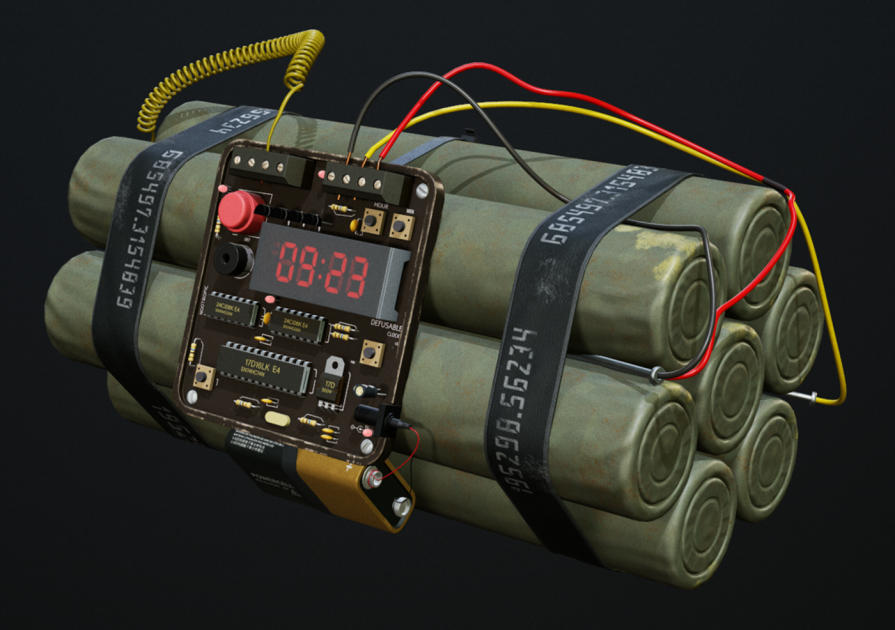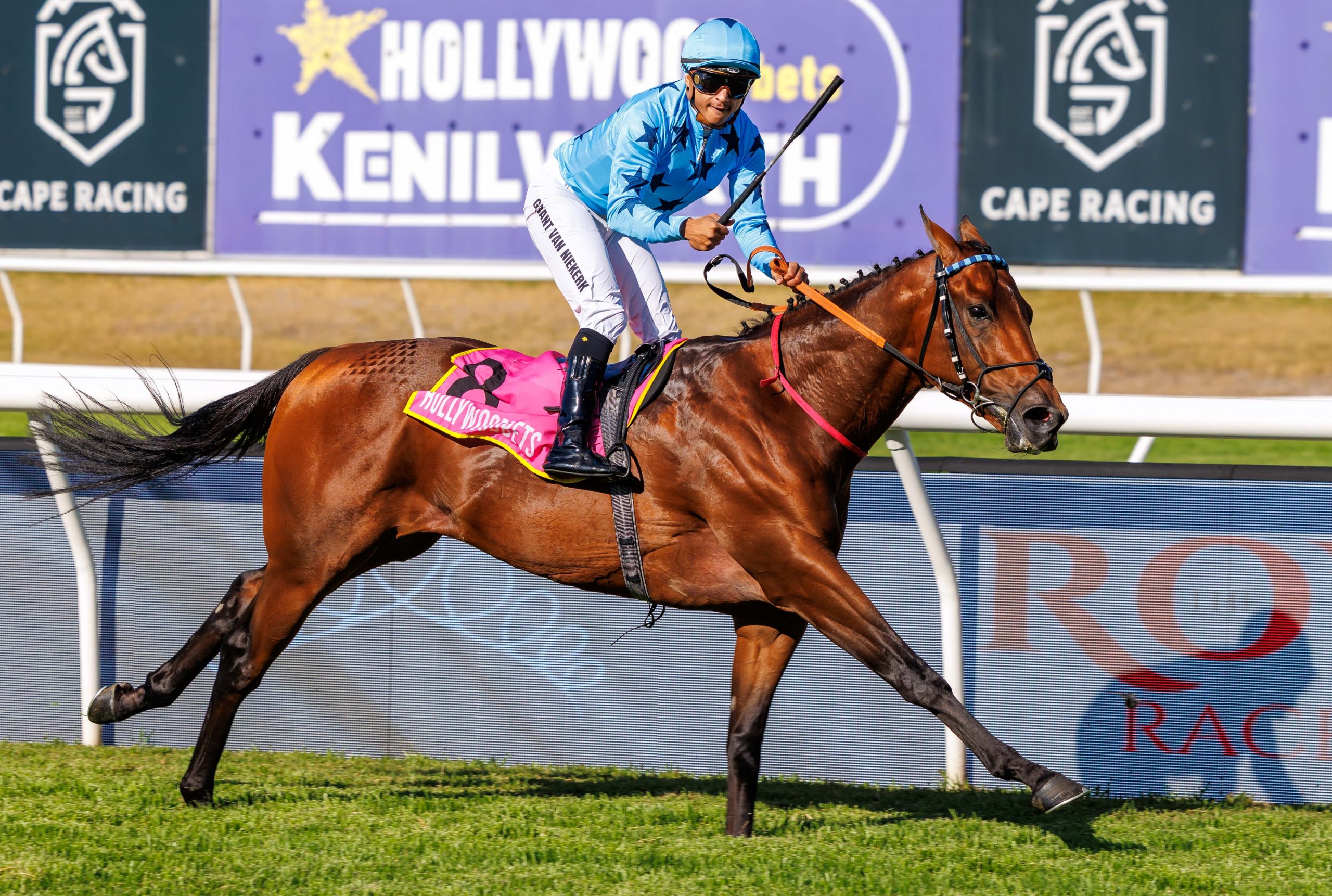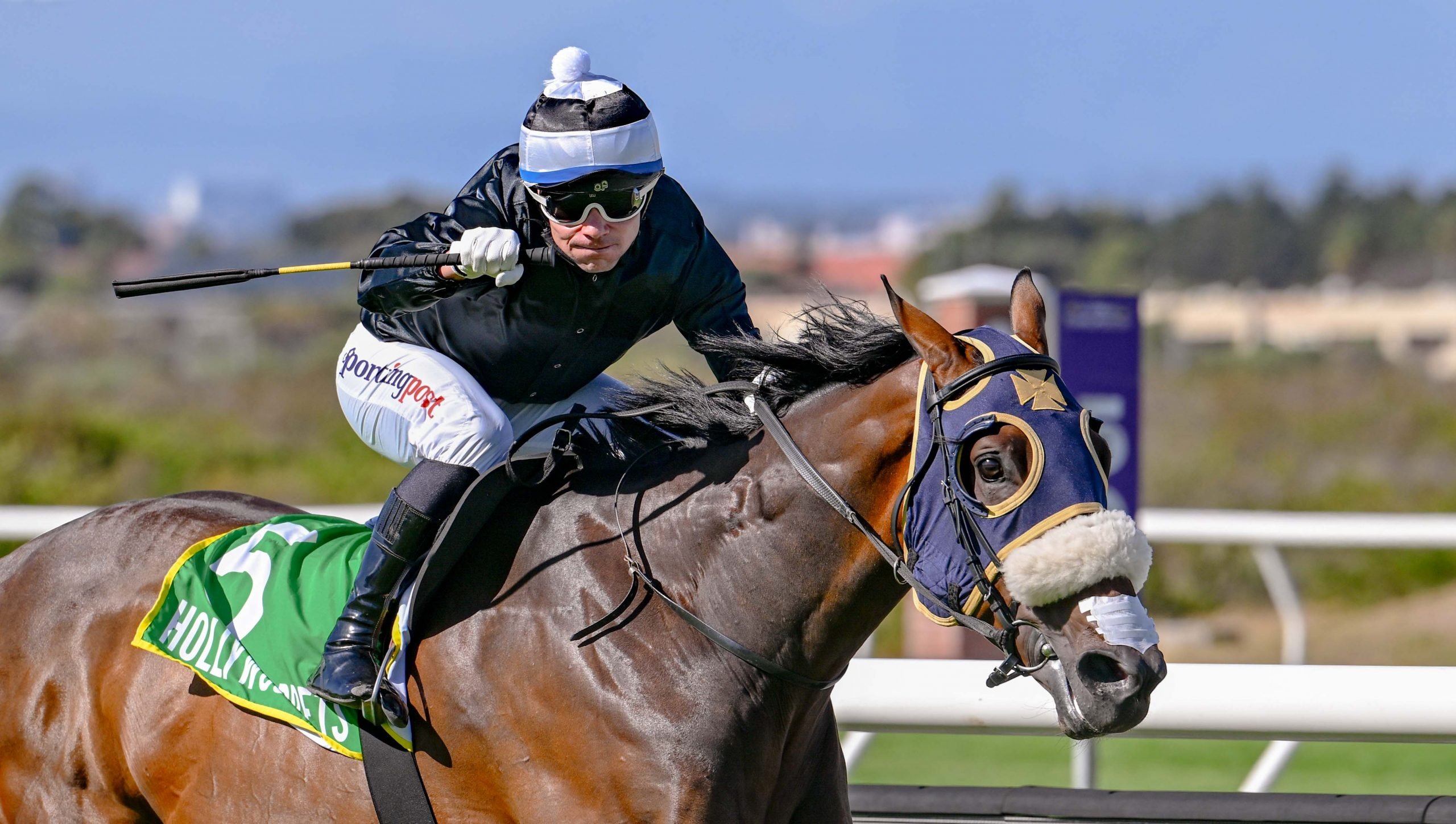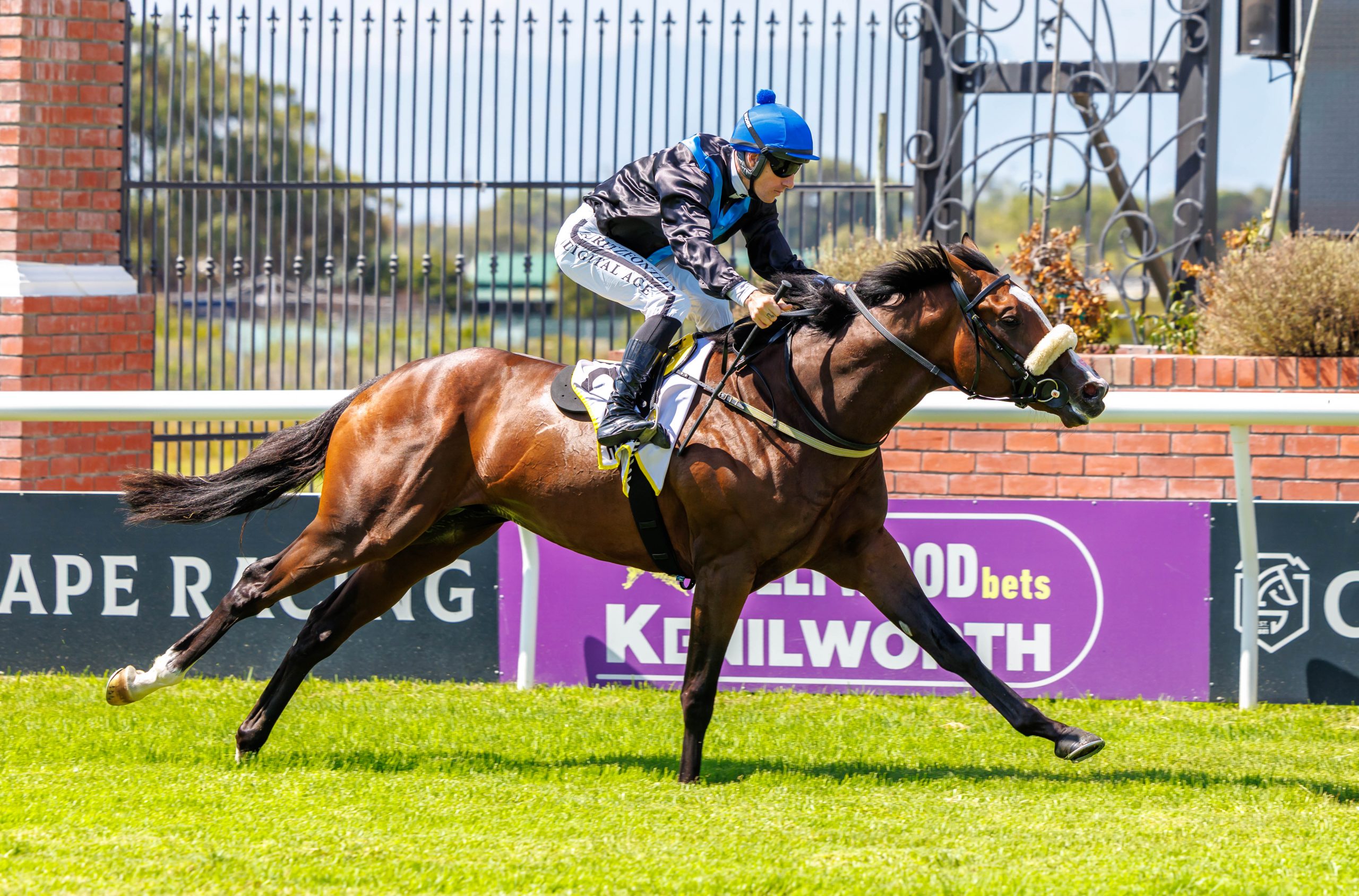TCO2 testing is a time bomb, bound to explode.
It’s akin to playing Russian roulette and is a lottery for owners and punters. We urge the National Horseracing Authority to suspend the process for more research to be done.
The reputational damage for trainers, and the industry at large, is also something the game can ill afford at this stage.
Concerns about the influences of variable factors like the environment, the horse’s nature, feed, humidity, and even doubts about the integrity of the testing equipment, has South African racing staring down the barrel of a loaded gun.

Robert Bloomberg (far right) leads in his Sunday winner with the RAR Syndicate (Pic – Chase Liebenberg)
Leading Cape legal eagle Robert Bloomberg is no stranger to controversy, and joined the fast growing nationwide calls for sense to prevail as he, decidedly politely, made the call on racing authorities in the post-race interview, after his overdue maiden winner The US Of A had bolted up in the second at Hollywoodbets Kenilworth on Sunday.
“This horse tested 37, before producing a 35 negative reading twelve minutes later. We understand the good intentions behind the introduction of the testing, but it’s becoming a lottery and needs to be suspended,” said the longstanding racing man of the process introduced by the NHA in mid March and which could have derailed his 5-10 shot, a universally popular Bipot banker.
Just 24 hours earlier, we had another three TCO2 positives on Daily News day at Hollywoodbets Greyville, including Lonsdale Stirrup Cup fancy Cape Eagle, who is raced by leading SA racing supporter, Sabine Plattner.
Garth Puller’s Izibulo and Alyson Wright’s Blowin In The Wind were both scratched from the opener on Saturday.
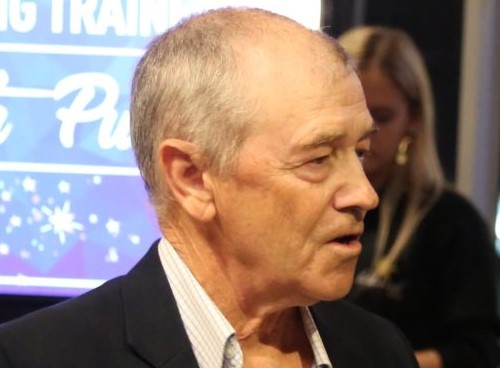
Garth Puller – ‘there are just too many factors that influence readings’ (Pic – Candiese Lenferna)
Puller told the Sporting Post that both of his 2yo’s running in the first two races had received exactly the same treatment and feed.
“I have never tubed, dripped or drenched horses in all my life. Izibulo is a beautiful filly. She has had nothing, bar a B1 injection to calm her for the trip to the racecourse. We must question the long list of variable influences, as well as the equipment being used. How is it that my horse gets readings of 38,37 and 39 – all of this while under direct NHA control?” he asked.
The former KZN champion trainer suggested that readings should be taken, and then immediately retaken on the same machine, to test the accuracy.
At Fairview on Friday, Kelly Mitchley and Jacques Strydom both had horses scratched at the eleventh hour for elevated TCO2 levels.
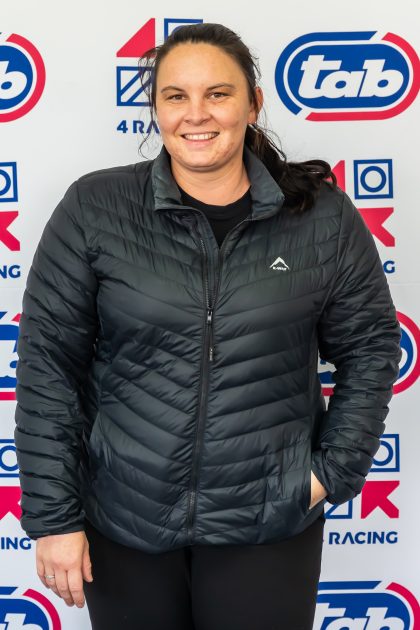
Kelly Mitchley – devastated at reputational damage and impact on the sport losing owners (Pic – Pauline Herman)
A devastated Kelly Mitchley told the Sporting Post that her 3yo gelding Resurgence was a naturally highly strung individual, and that the combination of the rain and the ‘jabs in his neck’ had upset him.
“I am so upset. We are doing nothing wrong. We don’t even have a bottle of bicarb in the yard. Resurgence tested 36,38,36. Our horses are treated in strict order and we are lifetime horse people who are building a business. My horse in the fourth race Ferrando was tested. He gets the same of everything that Resurgence gets. And he was clear. The industry is going to lose owners,” added Kelly.
The Sporting Post contacted a close to speechless owner of Resurgence, Cape Town based Lyn Viviers, of Horselands Breeding & Racing (Pty) Ltd, who said that horseracing’s leaders needed to work on embracing all stakeholders in the food chain.
“I have been in showing and eventing most of my life. I decided a few years ago to breed and race my own horses. I moved to Kelly Mitchley as I have not an ounce of doubt that she has the same approach to these animals that we love so much. I have no agenda but a pure love of my horses. I don’t gamble. I can afford to enjoy my racing. There was so much expectation that simply went up in a puff of smoke on Friday. Resurgence has just come back from time off after injury. The attitude of disinterest by those in charge has brought me to a crossroads. As an owner, I have already reduced my string from 9 to 5 horses and frankly I feel a complete disconnect to horseracing right now,” she added.
With the current set of rules, a horse is tested pre-race and if displaying initial elevated TC02 levels, the runner is subjected to further tests. If the limit is still breached after further tests, the horse is withdrawn.
The general rule is that a horse should be showing decreased levels during further tests.
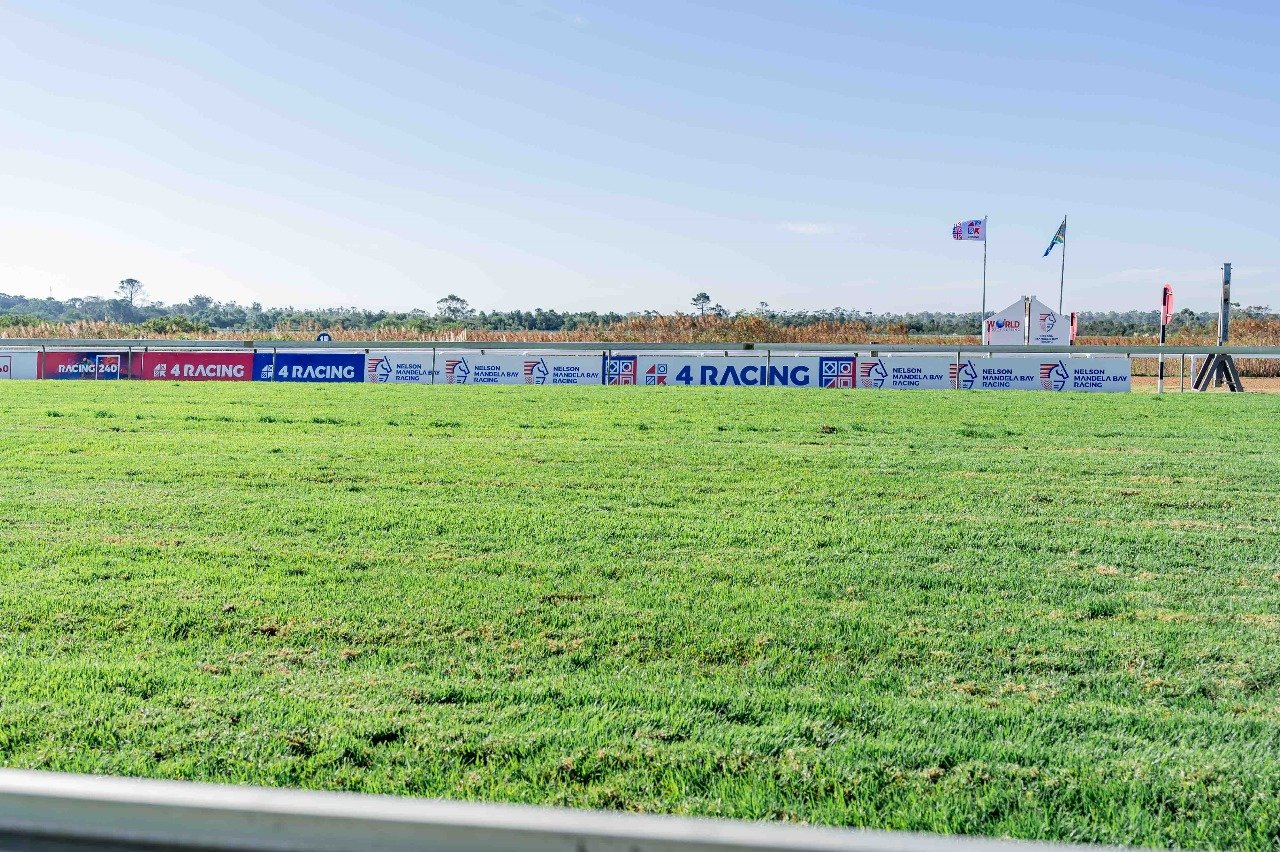
Fairview – scene of more scratchings on Friday (Pic – Pauline Herman)
Gqeberha-based assistant trainer Eddie Griebenow told the Sporting Post on Sunday that the process needs to have integrity and credibility, and be supported by science and an operational process that was largely watertight.
“We cannot be asked to sign blindly for specimens without having sight of readings or times taken, as an example.That is simply not good governance. There also appears to be little understanding on the ground by officials vested with the responsibility of enforcing the controls. And there are just too many variables at play that can impact the readings. Of our four runners on Friday, they all had the same feed, the same treatment, and yet one fails the test. We haven’t had a winner for months, why would we play games and break rules? It’s just frustrating and this process is playing with people’s livelihoods. Owners are not happy. I hope sanity prevails sooner rather than later,” he added, suggesting that it would make more sense to rather take the readings afterwards.
“We have enjoyed the concession for highly strung horses of being saddled at the back on racedays. Now this process disregards that, and it’s okay to upset them? There is talk of road shows. Shouldn’t there have been consultation and road shows, before implementation?” asked the veteran.
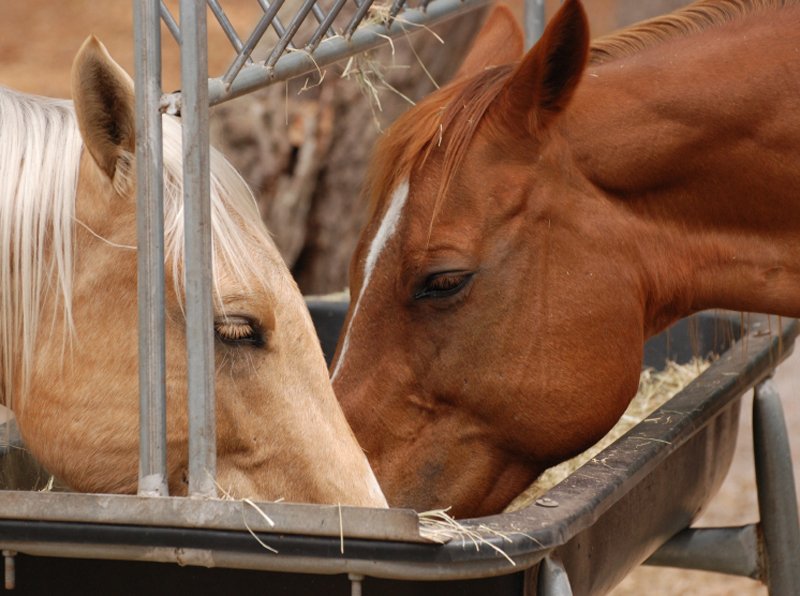
The Sporting Post was recently informed that lucerne, also known as alfalfa, can cause raised TC02 levels in racehorses due to its high alkalinity and buffering capacity.
Trainer and breeder Leon Lotz said recently that it is impossible that any trainer in South Africa could feed a horse without actually running the risk of incurring a positive on the TCO2 testing process. “And it’s got nothing to do with milkshaking!” he added. Food for thought, excuse the pun.
The threshold was recently increased from 36 to 37 mmol/L after agreement between the NHA and the SA National Trainers Association.
While no fines are being issued, and the intentions behind the introduction of TCO2 testing are undoubtedly commendable as a means of cleaning up the sport and levelling the playing fields, it has become a PR disaster, poorly conceived rush job, without any apparent consultation and education for all stakeholders, including the NHA’s ground staff, and is a ticking time bomb.
Owners, trainers and punters, and the industry at large, should not have been held to ransom and been used as guinea pigs in the first place.
Hollywoodbets Scottsville hosts the biggest multiple Grade 1 raceday of the 2024 SA Champions Season so far, on Saturday. Who knows who will get the TCO2 red card?


